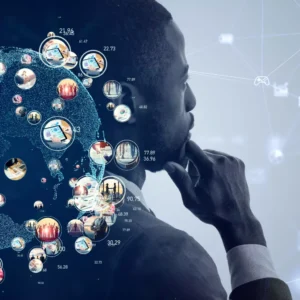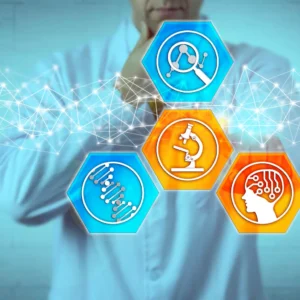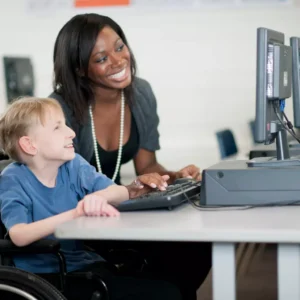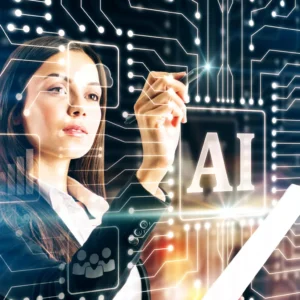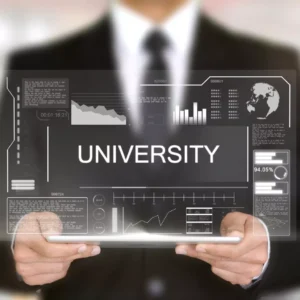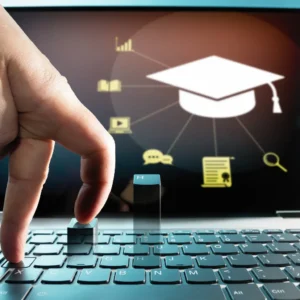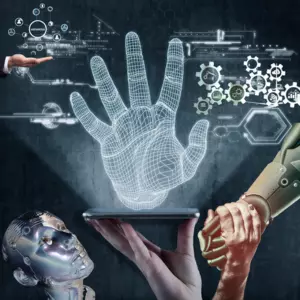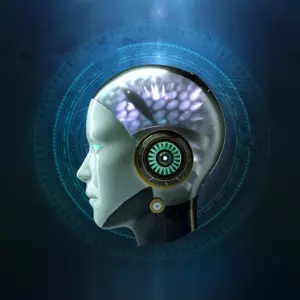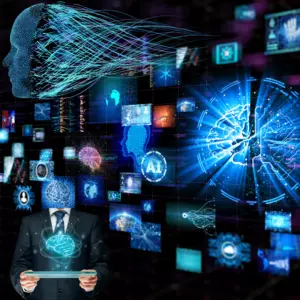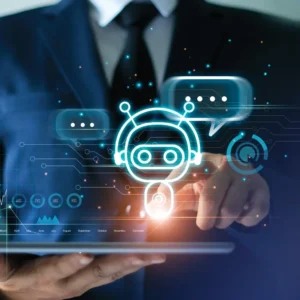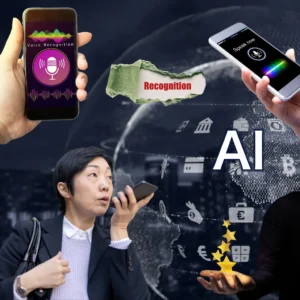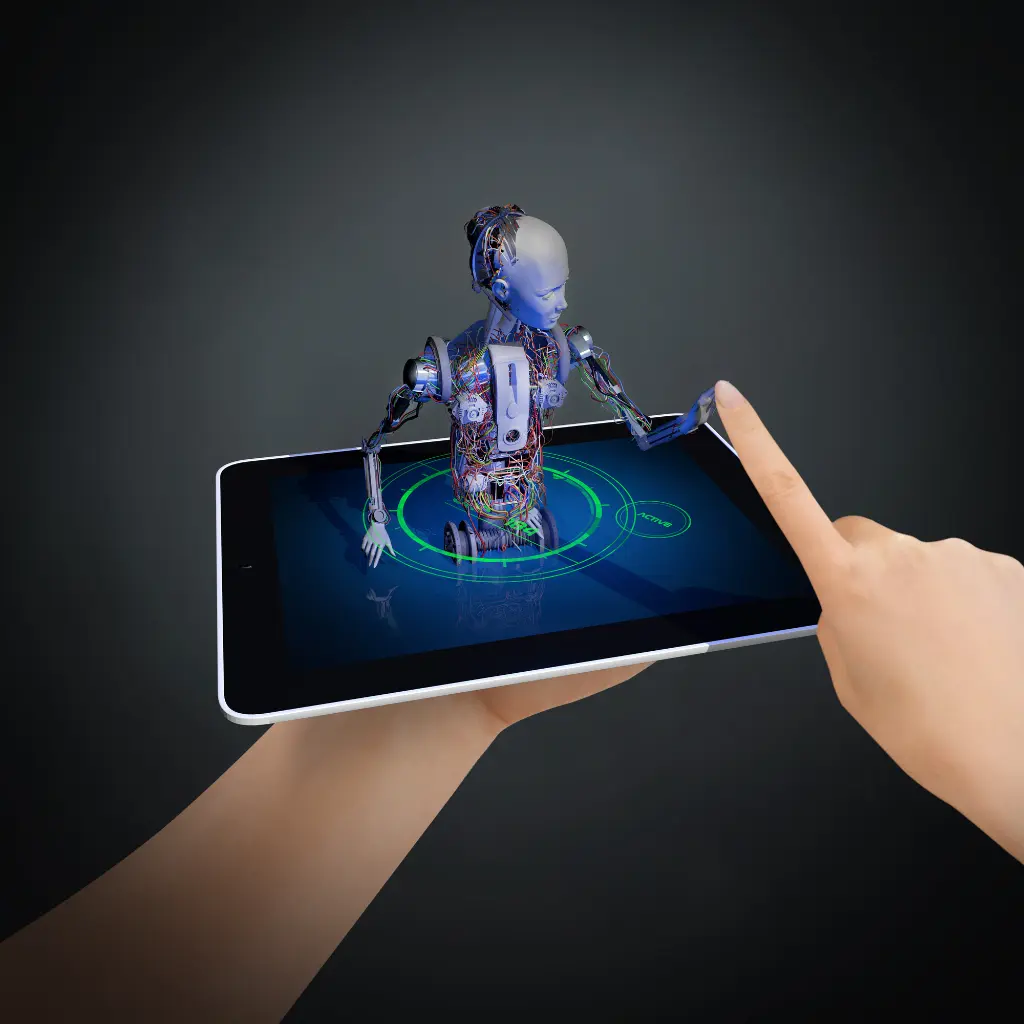
Play to Learn
AI's Transformation of Educational Games
In the ever-evolving landscape of education, the fusion of Artificial Intelligence (AI) and gaming is reshaping traditional learning paradigms.
This article delves into the captivating realm of educational gaming, where AI-driven innovations create a profound impact. From crafting intelligent games to tailoring adaptive challenges using Machine Learning, this article unveils how AI is moulding the future of education.
Embark on a journey to understand how AI-powered immersive environments, analytics-driven assessments, and personalized learning pathways pave the way for a more engaging and practical learning experience.
Join us in exploring the intersection of AI, gaming, and education, and catch a glimpse of the exciting trends that lie ahead.
Table of Contents

Arindam Roy
An Automation Consultant with 25+ years of IT Experience
Crafting Smart Educational Games
AI-driven game design is at the forefront of innovation in educational gaming. By harnessing the power of Artificial Intelligence, game developers can create dynamic and engaging learning experiences tailored to individual students.
These innovative games can adjust real-time content, challenges, and interactions through data analysis and adaptive algorithms, ensuring optimal engagement and knowledge retention.
Whether teaching complex concepts through interactive scenarios or fostering critical thinking via puzzles, crafting innovative educational games empowers educators to deliver personalized, compelling, and captivating learning environments.
As AI continues to evolve, the potential for these games to revolutionize education is boundless, promising a brighter future for learners worldwide.
Adapting Game Difficulty with ML
In educational gaming, leveraging Machine Learning (ML) to adjust game difficulty dynamically is reshaping the learning experience. AI algorithms analyze player performance, adapting real-time challenges to match skill levels.
As learners progress, the game evolves to maintain engagement and prevent frustration, ensuring a balanced and personalized journey. ML-driven adaptive difficulty caters to individual strengths and areas of improvement, fostering a sense of accomplishment while promoting continuous learning.
This innovative approach bridges the gap between challenge and skill, revolutionizing education by tailoring game-based learning to each student’s unique capabilities and driving improved knowledge acquisition.
Engaging Learners in Immersive Worlds
Educational gaming is transforming with AI-powered immersive learning environments. These virtual realms transport learners beyond traditional classrooms, offering captivating experiences.
By integrating AI, environments adapt based on user interactions, fostering active participation and deep engagement. Students explore historical eras, simulate scientific experiments, and solve complex challenges within these immersive worlds.
The synergy of AI and immersive learning opens avenues for interactive storytelling, experiential education, and kinesthetic learning. As technology advances, these immersive experiences could become a cornerstone of education, enabling learners to thrive in captivating, knowledge-rich environments that harness the power of imagination and discovery.
Gauging Learning Outcomes in-Game
AI’s influence on educational gaming extends to precise assessment through analytics. Educators can gain valuable insights into individual learning outcomes by tracking player actions, decisions, and progress.
AI algorithms analyze performance patterns, identifying areas of mastery and challenges. This data-driven approach enhances formative assessment, enabling timely interventions to address learning gaps. Real-time feedback guides learners, fostering metacognition and self-improvement.
Educators can make informed decisions based on comprehensive data, ensuring effective learning strategies. With AI-driven assessment, educational games facilitate knowledge acquisition and offer a robust framework to gauge and optimize learning outcomes, fostering a symbiotic relationship between gameplay and educational goals.
Personalized Gaming Learning Journeys
In educational gaming, AI empowers personalized learning journeys that cater to each student’s unique strengths and needs. AI algorithms curate tailored content and challenges by analyzing individual progress, preferences, and learning styles.
Learners embark on dynamic pathways, ensuring continuous engagement and optimal comprehension. Personalized gaming experiences foster intrinsic motivation and self-directed learning as students navigate content aligned with their pace.
This individualized approach enhances retention and cultivates a sense of ownership over learning. As AI continues to refine its understanding, personalized gaming learning journeys herald a new era of education, where games become personalized mentors on the quest for knowledge.
Integrating Games in Formal Education
The fusion of AI-powered educational gaming and formal education revolutionizes traditional classrooms. Incorporating educational games enhances learning by providing interactive, engaging tools that complement curriculum objectives.
Educators harness AI-driven analytics to gauge student progress and adapt teaching strategies. Gamification injects elements of competition and achievement, boosting motivation. These immersive experiences bridge theory and practice, fostering a deeper understanding of concepts.
As educational institutions recognize the power of games, AI-enhanced tools are reshaping education paradigms, creating collaborative, tech-savvy, and engaged learners prepared for future challenges. The synergy of AI and gaming catalyzes a vibrant shift in formal education dynamics.
Enhancing Game Engagement with Chatbots
AI-driven chatbots emerge as interactive companions in educational gaming, enriching the learning experience. These virtual assistants engage learners in natural language conversations, providing real-time guidance, hints, and feedback within the game environment.
As students navigate challenges, chatbots offer personalized assistance, promoting critical thinking and problem-solving. Additionally, chatbots adapt to individual progress, delivering tailored support.
This fusion of AI and conversation enhances engagement, bridging the gap between gameplay and learning objectives. Through responsive interactions and dynamic learning pathways, chatbots empower students to overcome obstacles while fostering a sense of companionship in their educational journey.
Ethical Considerations in Edugaming
As AI transforms educational gaming, ethical concerns emerge alongside innovation. Balancing data privacy, consent, and equitable access becomes crucial in designing AI-powered learning experiences.
Transparent data usage and informed consent are imperative to protect student information. Striking a balance between personalized learning and data security is essential. Additionally, addressing biases in AI algorithms ensures fair representation and equal opportunities for all learners.
As the world of edugaming continues to grow, educators and developers face the challenge of balancing potential benefits with ethical standards.
Creating a safe, inclusive, and responsible learning environment for students from all backgrounds is complex. Let’s rise to the challenge and unlock the full potential of edugaming!
VR/AR: The Next Frontier in Learning Games
Virtual Reality (VR) and Augmented Reality (AR) are revolutionizing educational gaming, ushering in immersive experiences that transcend traditional boundaries.
AI-powered VR/AR learning games transport students into interactive worlds where they explore historical events, scientific phenomena, and complex concepts firsthand. These technologies provide tactile engagement, enhancing spatial understanding and cognitive retention.
AI algorithms adapt content to individual learning styles, making lessons more engaging and personalized. As VR/AR technology advances, educational gaming unlocks new dimensions of experiential learning, bridging the gap between theory and practice and paving the way for a future where learning is truly an adventure.
Predictions for the Future of Educational Gaming
The progress made in AI technology is anticipated to transform the future of educational gaming. Anticipate even more intelligent game design, finely tuned through AI analysis and adaptation. Machine Learning will intricately tailor game difficulty and learning paths, ensuring optimal engagement and growth.
VR/AR will blend real and virtual worlds seamlessly, creating transformative learning landscapes. Ethical AI considerations will shape responsible game development, prioritizing data security and unbiased experiences.
With AI chatbots as companions and immersive environments as playgrounds, the boundaries between education and entertainment will blur.
Ultimately, AI’s pervasive role in educational gaming will shape a future where learning becomes an exhilarating journey customized to each learner’s aspirations.
Conclusion
Educational gaming, powered by AI, is reshaping learning paradigms. From crafting intelligent games to personalizing learning paths, AI-driven innovations foster engagement, adaptability, and personalized growth. As AI continues to evolve, educational gaming’s potential to revolutionize education is profound.
The fusion of AI and gaming promises a future where learning becomes an immersive adventure tailored to individual needs and bridging the gap between education and entertainment.
Related Articles
- Beyond Books: AI in Shaping Modern Curricula
- AI in Educational RND: Pioneering Paths
- Tailored Teachings: AI in Support Need Education
- Smart Schools: AI in Educational Management
- Intelligent Intake: AI in College Admissions
- Never Stop Learning: AI’s Boost in Adult Education
- Digital Desks: AI’s Footprint in Modern Classrooms
- Virtual Varsity: AI in E-Learning Platforms
- Reimagining Rules: AI’s Influence on Education Policy
- Smart Choices: AI in Global Education Counselling
- AI in language learning apps: Chatbots to Culture
- AI-Driven Tutoring Platforms: 24/7 Tutors
- Scoring with Systems: AI in Exam Prep
- Tiny Tots, Big Tech: AI’s Role in Preschool Education
- Classroom Companions: AI Tools for K-12 Education
- AI-driven EdTech Solutions: Revolutionizing EdTech Investment and Engagement
- Learning Never Stops: AI’s Impact on Continuous Education
- Skill & Scale: AI in Vocational and Technical Training
- Campus to Computer: AI in Virtual Learning in Higher Education
- Digital Transformation in Education: 5 Areas Where Process Automation Takes the Lead
- Other Articles on AI Usage in Education
- Other Articles on AI usage in other industries

